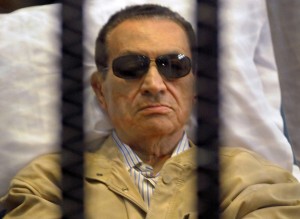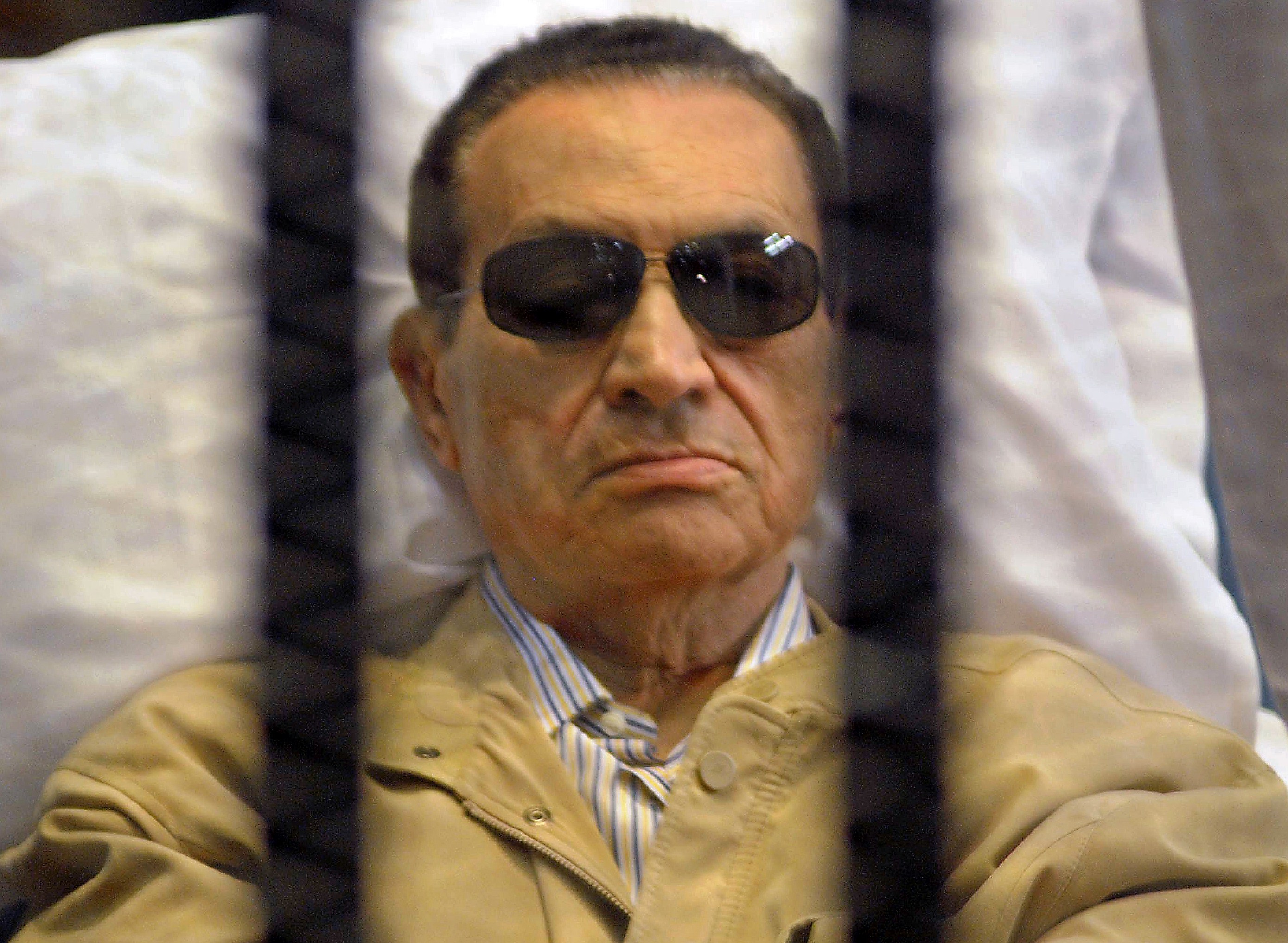
(AFP File Photo)
Prosecutor General Tala’at Abdullah ordered the incarceration of former President Hosni Mubarak for an extended 15-day period, state-owned Al-Ahram reported on Sunday. Investigations revealed Mubarak and his family had appropriated for personal use funds which originally were made available by the state for the upkeep of presidential palaces.
According to Al-Ahram, a source within the public prosecution said the extended incarceration will take effect once other temporary incarcerations related to other cases have been served.
Malek Adly, a lawyer at the Egyptian Centre for Economic and Social Rights (ECESR), called the decision to extend Mubarak’s imprisonment a media stunt which has little to do with any form of justice.
“On 15 April he will complete two years in jail without any final verdict from the courts,” Adly said. “The extended period will not make a difference because according to criminal law he could be imprisoned for up to 10 years without a formal sentence.”
In 2012 Mubarak was tried and convicted of failing to stop the murder of civilians during the 2011 revolution. His lawyers have since appealed the verdict, which will send the case back to trial on 13 April.
Mohamed Fadel, another ECESR lawyer, confirmed Mubarak’s retrial will take place on 13 April. According to him there is a high possibility Mubarak will be given a sentence. “Mubarak’s case is different than any other case,” he said. “Many government officials have been set free without a sentence but if Mubarak were to be released it would be a big issue.”
Fadel argued that Egyptians may not care for individual ministers but releasing Mubarak would certainly cause uproar. “If he is set free it will be clear that the system is the same as the previous one because then absolutely no one will have been put in jail for what they did.”
“[President Mohamed] Morsi told us he would make sure sentences were given to those responsible for killing people on 25 January but the opposite is true; since coming to power Morsi has set everyone free,” Fadel added.




